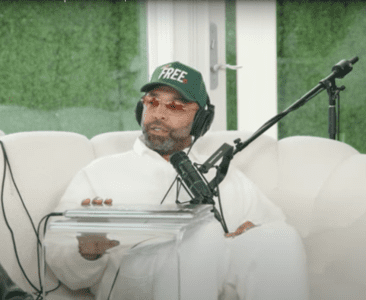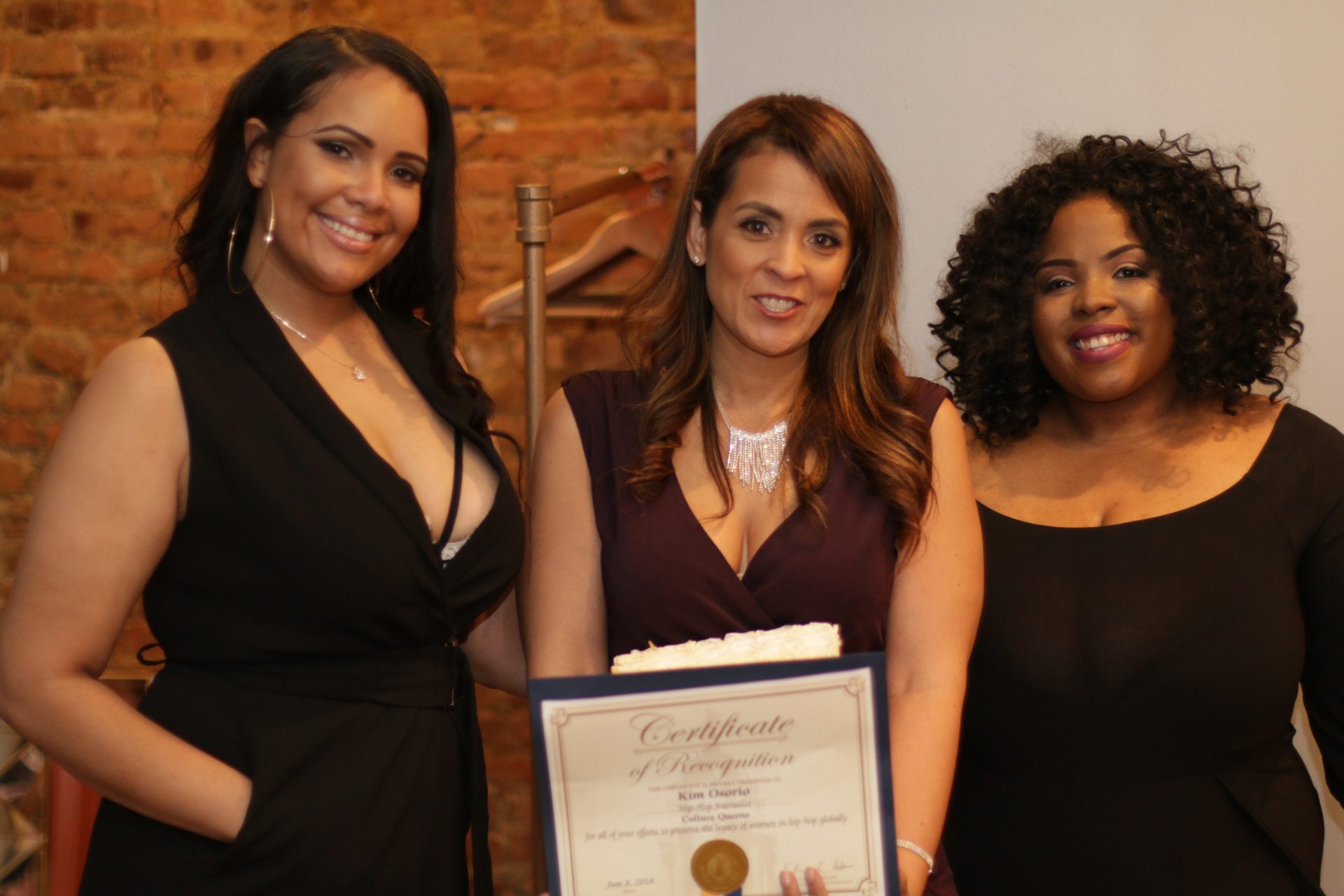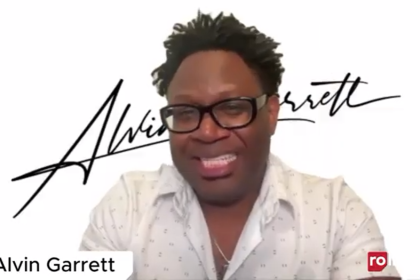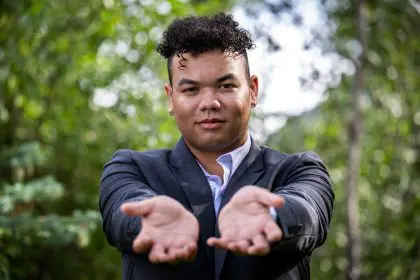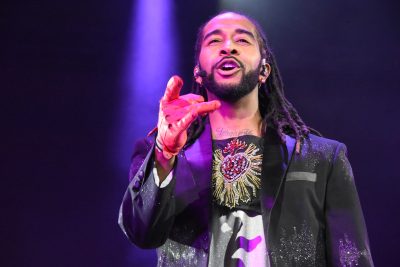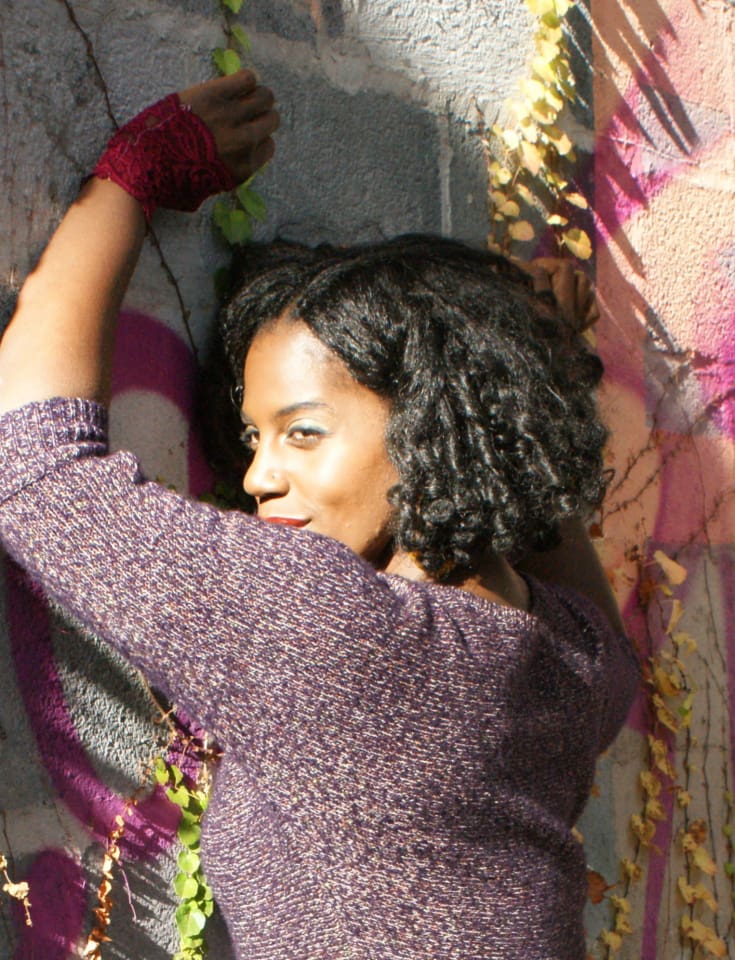
Mahogany Jones has a unique calling. She’s the U.S. Cultural Ambassador for Hip Hop Music with the US Department of State American Music Abroad program, traveling the world representing American Music in 13 countries, so far. She and her band were chosen out of thousands of applicants to represent the States abroad. She has traveled to nations such as Botswana and Pakistan this past November, bringing hip hop music to the world with the American Music Abroad Program.
The first four-time Undefeated BET Freestyle Friday’s Competition champion is also a freelance educator and adjunct professor with programs in Detroit High Schools and the Detroit Institute for Music Education (DIME), where she teaches life skills to troubled young adults through hip hop music, poetry and music and video production.
Here, the co-founder of Women in Hip Hop, an organization uniting women in music, talks about her experience performing and speaking about hip hop music all over the world holding workshops in each country, and how traveling has changed the way she looks at music, culture and the world. She also reveals the creative process behind her new release Sugar Water.
What does it mean to be a cultural ambassador for hip-hop?
One of the most integral parts of diplomacy work happens to be people to people connections. In order for our US embassies to truly be effective, it is best if the people of the country that we serve have a true sense of Americans’ hearts and our good intentions. Music is often a language of love and hip-hop is a culture that overcomes divides and naturally creates camaraderie and connection. As a U.S. hip-hop ambassador, it is my pleasure to share a culture that I love as a tool of empowerment and community development, which was the initial essence of hip-hop. So, when I am sent abroad, I facilitate songwriting and empowerment workshops, as well as perform at concerts and collaborate with that country’s local musicians.
What do you love most about teaching?
I love that I get to share a piece of my heart with those who are willing to receive it — I guess the same thing that I love about performance. Except for with teaching I get to transfer a skill that others when they apply what I teach becomes a part of their own personal growth. I am not yet physically a mother, but in many ways I can imagine the joy of motherhood when I see the growth of my students or those who I have mentored.
When did you know that being a musician was your calling?
I’ve always been fascinated with words. I can remember as young as six me trying to write in cursive and then at eight stories, and then at 13 poetry. However, when I saw the power of the spoken word and realized that I could essentially tell stories that were under scored by my favorite musical genres, by 20 I was sold and I knew it was my life’s mission to create music that would spread God’s love, hope, and inspiration to those who would listen.
What inspires you to perform?
My love for God and my love for people inspire me to perform. Artist who have touched me and as a result of their art form shifted the way I saw myself, saw the world and saw myself in the world have inspired me to want to attempt to do the same for those in the world that I love, but they just don’t know it yet. Lol.
What instruments, if any, do you play?
This makes me so sad. I have tried to play piano; as a child I had a few years of lessons. In college, I took a few guitar lessons, but, unfortunately, the only instrument I play is this big mouth of mine.
How would you describe your brand of music?
My music is adult contemporary hip-hop. [Laughing] No seriously, I would say it is hip-hop for the soul or better yet I classify myself as a hip-hop soul artist. The vulnerability and storytelling element of most of my songs lends itself to what’s fundamental about folk music or soul. Sonically, my music is a blend of golden era hip-hop, jazz, R&B and soul.
Name three musicians who have influenced your approach to being a musician.
Stevie Wonder, Mary J Blige, Lauryn Hill
Explain your creative process from concept to complete song.
Usually, when I create for a full project, I will have a concept in mind. I will then jot down a few topics of subjects I’d like to cover in the framework of that concept. My producer and I will seek out production that fits the mood of those topics and the general concept of the album, and the track and concept that speak to me most at the time is the song that I will work on.
I’ll lay a rough version of it. And will listen a few days later to see if it’s as good as we thought it was when we first laid it.
How do you select your creative music partners to fashion your musical voice?
That’s a process I usually undertake with my producer Ron “i-Ron-icLee” Lee, Jr. We usually at length will talk about what I’ve been enjoying sonically and the direction that we might like to create for the project and then from there think about production we’ve heard from some of our peers or in general that has a sound that we think will fit.
What musical achievements have you yet to attain?
So much, but I think that is what is most exciting. I’m looking forward to performing at the Essence Jazz Festival,Afro Punk, Madison Square Garden, collaborating with Tracy Chapman, India Arie, Robert Glasper, Coldplay, J. Cole, Common, Lauryn, (too many to list) and of course walking away with a few Grammys in my lifetime.
What do you like the most about being a musician?
The connection that I feel to God, myself, and others when I get to create and share my heart.



